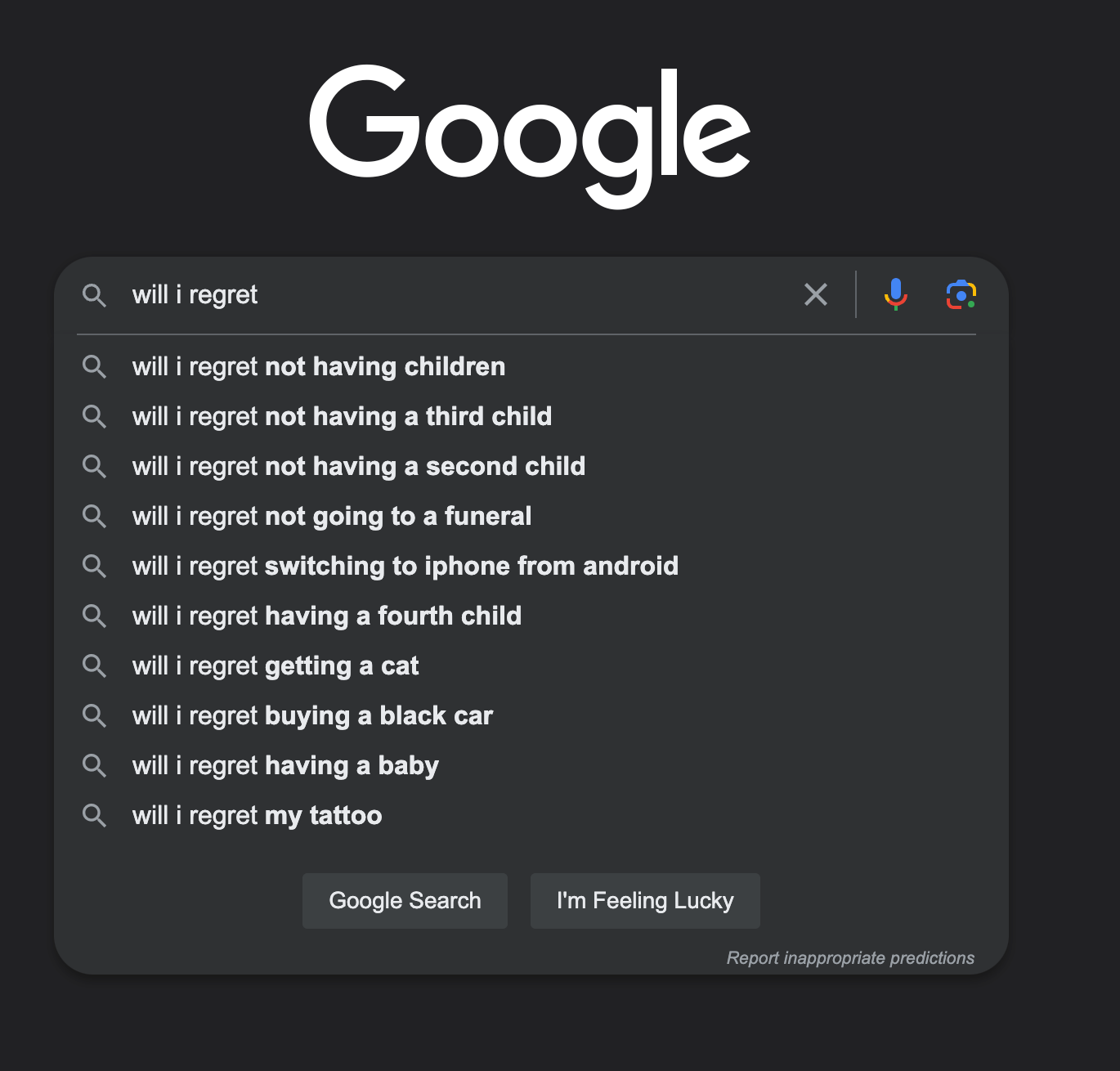Why we can't stop lying to ourselves and everyone else. 😈

You are all a bunch of liars. And so am I.
Yep, I’ve been looking at some datasets this week - because I’ve got nothing better to do with my time - about how often we lie. And it turns out, we do it all the bloody time.
So much so, that many of the institutions and structures that hold up society don’t do a very good job at looking after us, because we keep telling people one thing, but really we mean something else.
So this week I’m going to be delving into the depths of our deceit, and asking: Why do we do it? And is there anything that we should be doing differently?
Liar, liar, pants on fire 🔥

Lying is the cornerstone of our existence. Try this pop quiz:
- Have you ever cheated on a test?
- Have you ever fantasised about killing someone?
Did your brain go a bit fizzy when you thought about those questions? If it did, welcome to the world of lying. If you didn’t, what on earth is wrong with you? Just kidding (or am I?). I’ll come back to that later.
This concept has been understood for quite some time. In the 1950s, researchers wanted to test whether surveys were actually giving us an accurate picture of how people genuinely felt.
So researchers went and collected all this data on residents living in Denver. They got hold of data on how many people voted, how many gave to charity, and how many of them owned a library card. Then they asked the people of Denver the same questions.
This is what they found:

People were clearly lying. But it wasn’t just the good people of Denver who were deceiving their scientific overlords.
We see examples of this stuff everywhere.
In politics:
- No pollster thought Donald Trump would get elected because when people were asked, they said they weren’t going to vote for him.
- No one thought Brexit would win, because when people were asked, they said they wouldn’t vote for it.
In our personal lives:
- We lie about how often we go to the gym.
- We lie about how much alcohol we drink.
- We lie about getting in touch with friends.
On the internet:
- More people search for “porn” than they do “weather” despite only 25% of men and 8% of women admitting they search for the former.
- Parents are 3.6 times more likely to tell Google they regret their decisions than childless couples do.
- Men ask Google about their penis more often than they do any other body part combined.

Oh and my absolute favourite, we also lie depending on where we are writing things.
Have a look at these two groups of descriptions:
Group 1
- the best
- my best friend
- amazing
- the greatest
- so cute
Group 2
- gay
- a jerk
- amazing
- annoying
- mean
Quite different, aren't they? Well, yes, and no. Group 1 is how people talk about their partners on social media. Group 2 is how people talk about their partners when searching on Google.
The summary? We cannot stop lying. But the bigger question is, why?
The many faces of lying 🥸

We lie for all kinds of different reasons. There are lies we tell ourselves, lies we tell others, and lies about things we tell others to make them do things. Let’s break them down.
Lies to ourselves 🙅
This one is pretty easy. We lie to ourselves to protect our egos. And we do it all the time. And why not? If we can tell ourselves a little lie to make us feel better, or to get ourselves through the day why wouldn’t we?
What lies below that is the tricky subject of belief. When we think of ourselves, it is a mish-mash of experiences, ideas, and beliefs that came to us externally, but once we interalise them, change slightly. It’s why eye-witnesses have become unreliable in legal cases: too much of ourselves goes into remembering things. We use our bias to code the meaning of our experiences. The same thing happens when we lie.
If we believe we are clever and capable, we will overlook data that might contradict that. Why? Because preserving our own beliefs take precedence over the truth. But what about other people?
Well, it’s a slightly different take on the above.
Lies to others 🤼

How many of you would willingly show your parents or loved ones your search history? Oomph, it’s that fizzy feeling again. Remember that from earlier?
This is an important response to the idea that our image of ourselves would be damaged in the eyes of other people. Because we are social beings, we face conscious and unconscious pressures to fit in and belong.
Part of maintaining these ideas will include reputation management: there are things about ourselves that we don’t want people to know about us because we fear we will be rejected and shamed as a result. This is very very very normal.
There’s also a fun component that comes with deception: we can use it to convince others to take on our beliefs. Yep, deception is a strategy that is used to fool not only ourselves, and others, but to fool others in to changing their minds. Again this is very normal and most of the time it happens below our awareness.
What on earth do you want me to do with this information? 🤔

Everybody lies. But that doesn’t mean that lies don’t hurt, or upset us or leave us with massive trust issues (just me? Oh.)
The most important thing is to be able to know ourselves well enough to unpick the lies and deception from a greater need to avoid being rejected. Lies can hurt not only our loved ones, but ourselves too.
Lying exists on a spectrum, and we should all try and aim for the sweet spot. Some deception is fine, massive, industrial-sized lying is terrible. Brutal truth also has its downsides.
Our societies have created institutions that try to prevent lying from doing harm to people: the legal system. Which works pretty well most of the time.
For ourselves, however, we don’t have the equivalent of a devil and angel sat on our shoulders passing judgment on our behalf. So what to do?
- First, accept that you lie.
- Second, accept other people might do too, for good reason.
- Third, lying in some contexts is bad, whereas lying in others is kind of ok.
- Fourth there are things that hold people to account to prevent this, but it’s an imperfect system - but you shouldn't lose faith in it because life would be infinitely worse.
Take twice a day until an existential wave of acceptance washes over you. 🌊
Things we learned this week 🤓
- 🗣️ Talking to yourself is good for you.
- 💭 Why do we forget our dreams?
- 🧠 Having sex stops your brain getting old.
- 👪 Kids close with their parents more likely to be nice later on.
If you would be so kind 🙏
I’m building out my content on video and podcasts, and I’d love your support.
🤜 Hit that subscribe button over on YouTube.
🤜 Tune into my podcast every week.
I love you all. 💋





